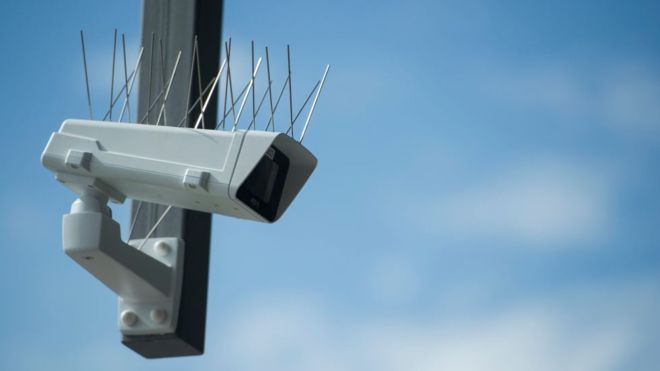In the last month we have seen an increase in demand from clients for hosted desktops. With much of the UK being battered with multiple storms leading to widespread flooding and the increasing threat of the coronavirus impacting our lives, an increasing number of businesses have been dusting off their business continuity plans, that’s if they have one at all. Businesses are realising that their plans are not robust enough and that they need to look at remote working as a real option to ensure their people can continue to work even if they can’t access their normal office location.
Whilst COVID-19 is still at a relatively early stage in the UK, we are seeing the impact that it is having in Europe, America and Asia and the next few weeks will be critical in its management to keep its spread low. It is estimated that 20% of the workforce could be off sick at the virus’ peak, as well as significant numbers of employees being in self-isolation, looking after children during potential school closures or caring for ill relatives. Businesses recognise that doing nothing is no longer an option to ensure that they can continue to operate, albeit with lower capacity.
To help our clients ensure survival of their businesses, here are just a few reasons why a remote desktop solution or a simple Globalnet Connect account could be the remote working solutions your business needs.
Keeping Employees Safe and Well – Employers are under a duty of care to ensure the health, safety and welfare of all its employees. Providing tools to help reduce travel, face-to-face meetings as well as the ability to work in a safe environment can help keep employees productive and safe.
Keeping your Business Running – If any or all of your employees need to self-isolate, provide childcare or are unable to travel they can continue to access their PC from home and continue working.
Limit Financial Impact – By providing remote working solutions for your staff, you can minimise any financial impact on both your business and on your employees.
Ease of Access – With a remote desktop solution, employees can work from anywhere with an internet connection and from most devices. Over 95% of employees have access to superfast broadband from home, meaning that even if their desktop or laptop is at the office, they can access all of their applications from home. (Source: Ofcom, Connected Nations Report).
Globalnet Connect
*UPDATE* WAS £10pm, now FREE for the duration of the crisis!
Fast Set-up – This is a software based solution that allows your team to connect with their office PCs from their home PCs and can be installed relatively quickly, though the more users you have the longer it will take!
Best for Small Companies or a Fast Fix – This is suitable for small businesses with fewer than 20 people or larger companies with only a few employees working from home and needing a an emergency solution.
FREE Low Cost– With a relatively small set up fee and user licence, this is an affordable solution for small businesses or when only a few employees are away. Larger companies may find our remote hosted desktops more cost effective.
Remote Desktop Server
On-site Server – One solution is an on-site server, which can be remotely accessed by your staff working from home.
Best for Larger Companies – This is suitable for larger companies and is more robust than Globalnet Connect.
Permanent Solution – Once installed, the server will function for several years and provides a permanent solution moving into the future.
Cloud Hosted Desktops
*UPDATE* First two months FREE!
Off-site – Hosted desktops together with cloud servers and storage move much of the management of desktop computers and servers into the cloud so that any disruption to business use of IT can be minimised if and when the need arises.
Ease of Access – With a hosted desktop, employees can work from anywhere with an internet connection and from most devices. Over 95% of employees have access to superfast broadband from home, meaning that even if their desktop or laptop is at the office, they can access all of their applications from home. (Source: Ofcom, Connected Nations Report).
Keeping Data Safe – Losing data can have a major impact on businesses, in fact some businesses never recover from a large loss of data. With a Globalnet hosted desktop solution we backup all your server data to an offsite location.
Lower Risk – Moving to a hosted desktop solution reduces the risk of an incident leading to a disaster for your customers. Fires, floods and power failures can mean that customer’s IT systems are completely unusable. With a hosted desktop solution from Globalnet you have peace of mind that you can be back up and running almost immediately should the worst happen.
SPECIAL OFFER
Free Service for 2 months (if you signed up today, we wouldn’t invoice you for the service until June)
Free Set Up
Prioritised Set Up (to get you up and running ASAP)
Free Data Migration
Includes:
- Windows 8/10 Style Desktop
- 5GB Personal Storage
- 10GB Network Storage (per user)
- Data Backed Up Across Multiple Sites
- Webroot
- 24/7 UK Based Support
- Application Server (min. 3 users)
We understand how worrying the recent events are for our customers and we have products that suit any business, whatever size and whatever industry, so that if disaster strikes we’ll be here to get you up and running. Our team of experienced engineers is dedicated to ensuring that our service is reliable, monitored and above all secure.


